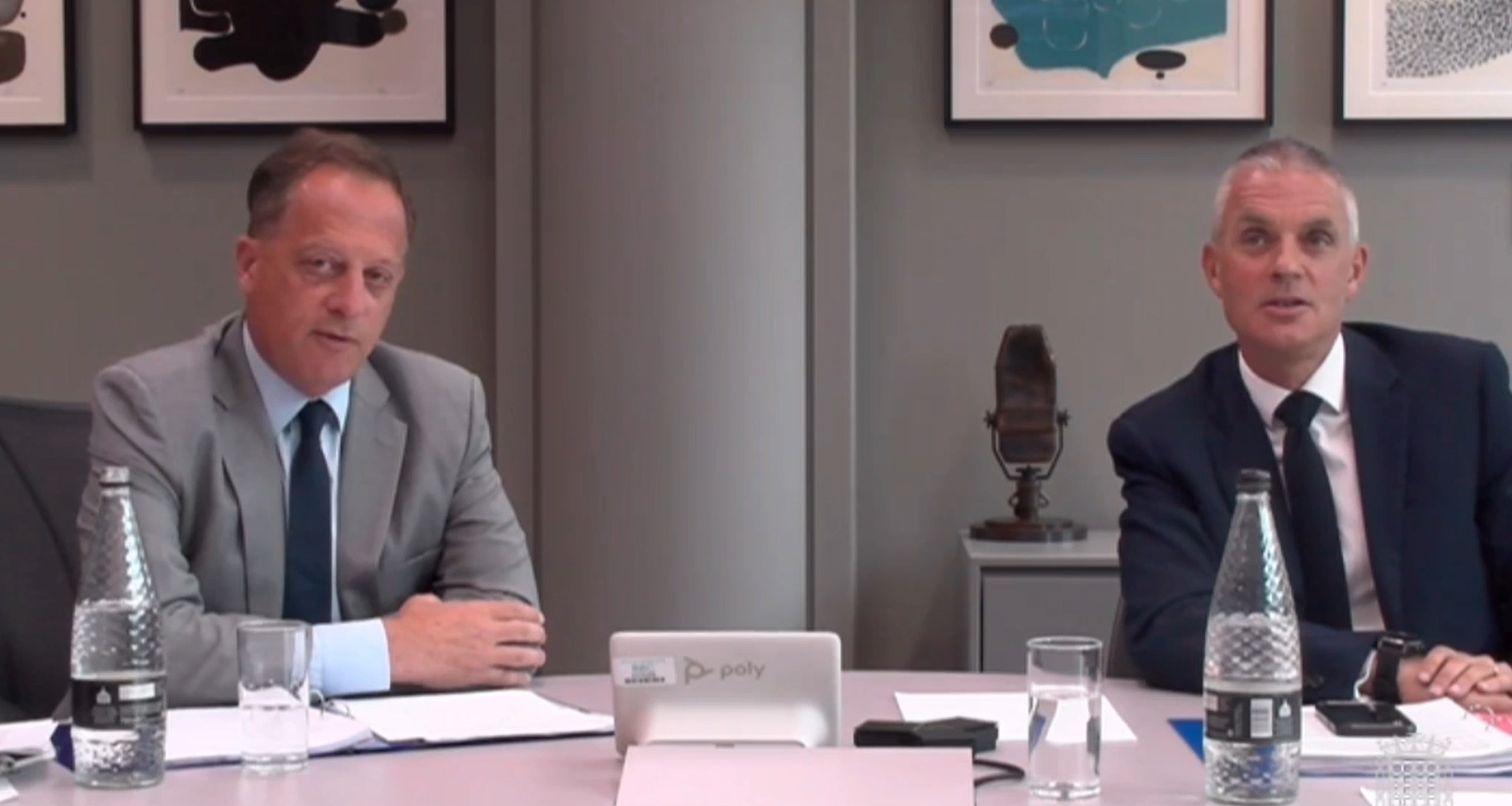BBC bosses pledge to ‘make strong case’ to Government amid axing of licence fee
The current licence fee funding deal expires in 2027.

Your support helps us to tell the story
From reproductive rights to climate change to Big Tech, The Independent is on the ground when the story is developing. Whether it's investigating the financials of Elon Musk's pro-Trump PAC or producing our latest documentary, 'The A Word', which shines a light on the American women fighting for reproductive rights, we know how important it is to parse out the facts from the messaging.
At such a critical moment in US history, we need reporters on the ground. Your donation allows us to keep sending journalists to speak to both sides of the story.
The Independent is trusted by Americans across the entire political spectrum. And unlike many other quality news outlets, we choose not to lock Americans out of our reporting and analysis with paywalls. We believe quality journalism should be available to everyone, paid for by those who can afford it.
Your support makes all the difference.BBC bosses have pledged to “continue to make a strong case to the Government for investing” in the corporation after the licence fee came under fire.
In a message sent to staff, director-general Tim Davie and chairman Richard Sharp said they “welcomed” debate and “look forward to engaging in a discussion about public service broadcasting in the UK and how best to fund it”.
Culture Secretary Nadine Dorries said at the weekend the next announcement about the BBC licence fee “will be the last”, saying she wants to find a new funding model for the broadcaster after the current licence fee funding deal expires in 2027.
She will give a statement on the BBC to MPs on Monday afternoon.
In their internal message, Mr Davie and Mr Sharp reminded staff the licence fee is “fixed” until the end of 2027 but said what happens after that “is a matter for public discussion and debate”.
They continued: “At the moment the discussions about the future level of the licence fee for the rest of this Charter period are still ongoing, although we do expect them to conclude very soon.
“We will continue to make a strong case to the Government for investing in the BBC.
“There are very good reasons for investing in what the BBC can do for the British public, the UK creative industries, and the place of the UK in the world.
“This is the case that we’ll continue to make to the Government right until the last moment.”
However, the pair said “it is for the Government to set the licence fee at the level that they believe is appropriate”.
They added: “As soon as we have more information we will let you know. In the meantime, thank you for your continued hard work, commitment and creativity.”
Ms Dorries is expected to announce later this week that the licence fee will be kept at the current rate of £159 until April 2024, various reports said.
The annual BBC licence payment normally changes on April 1 each year and is set by the Government, which announced in 2016 it would rise in line with inflation for five years from April 1 2017. It is reported to be worth around £3.2 billion to the BBC.
Earlier on Monday, shadow culture secretary Lucy Powell said the Government is signalling “the end of the BBC as we know it” in a “pathetic” attempt to distract from Boris Johnson’s difficulties over Downing Street parties.
She said the £159 licence fee is “incredibly cheap” and criticised Ms Dorries for making an announcement on Twitter as part of a Tory Government plan to offer “red meat for their backbenchers”.
Downing Street said it was “vital” that the BBC sought to keep down costs ahead of an expected freeze in the licence fee.
The Prime Minister’s spokesman said: “It’s obviously vital the BBC is doing everything possible to avoid new costs for UK households – at a time when many are facing financial pressures – and deliver the best value for money for licence-fee payers.”
He said: “We have said that we will keep the licence fee until the end of the current charter period in 2027 but, ahead of that point, we will review how the BBC is funded.”
The spokesman rejected Labour’s distraction claim, adding: “The Government’s commitment to BBC reform is long-standing.”
Following the reports, celebrities including comedians Matt Lucas and David Baddiel, and presenters such as Richard Bacon and Dan Walker took to social media to defend the corporation.
The Department for Culture, Media and Sport has been contacted for a comment.